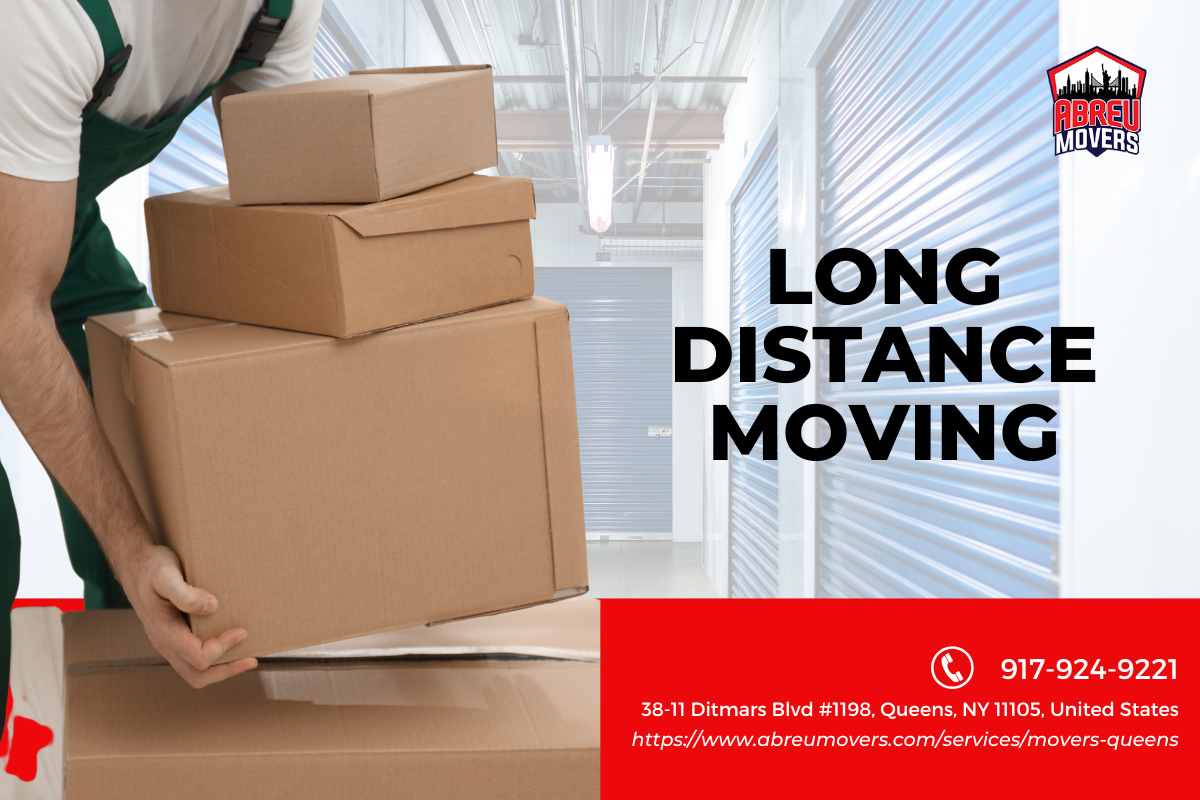

Moving from one state to another can be both an exciting adventure and a daunting challenge. There are numerous factors to consider, from logistics to legal requirements. In this comprehensive guide, we will delve into the complex world of interstate moving regulations.
What Are Interstate Moves?
Interstate moves refer to relocations where goods or individuals travel across state lines. Unlike local moves, which generally occur within the same state, interstate moves involve navigating various laws and regulations set forth by both federal and state agencies.
Why Do People Move Interstate?
There are numerous reasons for undertaking long-distance moving:
Job Opportunities: Many individuals relocate for better job prospects. Family Reasons: Some move closer to family or loved ones. Quality of Life: People seek improved living conditions or environments. Education: Students often move for college or university education.Understanding the Regulations Behind Interstate Moves
Interstate moving is governed by a variety of regulations that are designed to protect consumers and ensure fair practices among long distance movers. Federal regulations primarily come from the United States Department of Transportation (DOT) and its sub-agency, the Federal Motor Carrier Safety Administration (FMCSA). These regulations set standards for licensing, insurance requirements, and more.
Federal vs. State Regulations
While the federal government sets baseline standards for interstate moves, individual states may impose additional requirements. This dual regulation means being well-versed in both state-specific laws and federal mandates is crucial.
Licensing Requirements for Long Distance Movers
To operate as a long distance mover across state lines, companies must obtain a USDOT number issued by the FMCSA. This number is essential for identifying carriers in safety records and consumer complaints.
Key Points:
- Ensure your chosen long distance moving company has a valid USDOT number. Licensing varies by state; some may require additional permits.
Insurance Coverage for Interstate Moves
When planning an interstate move, understanding insurance coverage is paramount. Federal law mandates that moving companies offer basic liability coverage known as "released value protection." However, this coverage may not be sufficient to replace your belongings fully.
Types of Insurance Available:
Released Value Protection: Basic coverage provided at no charge. Full Value Protection: More comprehensive insurance that covers full replacement costs. Third-party Insurance Options: Additional policies you can purchase through independent insurers.Consumer Rights During Interstate Moves
Consumers have specific rights when engaging with interstate moving companies. The FMCSA has established guidelines ensuring that https://squareblogs.net/zardiarwep/the-benefits-of-using-professional-long-distance-movers customers receive proper estimates and transparency throughout the process.
Important Consumer Protections Include:
- Written estimates before service begins. A detailed bill of lading outlining services provided. The right to file complaints against dishonest movers.
Choosing the Right Long Distance Moving Company
Selecting a reputable long distance moving company can make all the difference in ensuring a smooth transition during your interstate move.
Factors to Consider When Selecting Movers:
- Reputation: Research reviews on platforms like Yelp or Google Reviews. Services Offered: Determine if they provide packing services, storage options, etc. Pricing Structure: Get multiple quotes to compare costs effectively.
Common Mistakes Made During Interstate Moves
Even seasoned movers can overlook key elements when relocating across state lines.
Avoid These Common Pitfalls:
Failing to read contracts carefully can lead to unexpected charges. Not checking a mover's credentials might result in hiring unlicensed companies. Overlooking packing tips could lead to damaged belongings during transit.The Role of Cross Country Movers in Your Relocation
Cross country movers specialize in transporting goods over long distances efficiently and safely.
Benefits of Hiring Cross Country Movers:
Expertise in handling logistics over vast distances. Access to specialized equipment designed for long hauls. Comprehensive tracking systems keeping you informed throughout your move.Understanding Estimates and Contracts with Long Distance Moving Companies
Estimates form a vital part of any interstate move—knowing how they work helps avoid confusion later on.
Types of Estimates You Might Encounter:
Binding Estimate: Guarantees that you pay no more than the quoted amount. Non-Binding Estimate: Relying on weight estimation; costs could fluctuate based on actual weight transported.Tips for Understanding Contracts:
- Read terms thoroughly—know your rights! Clarify any ambiguous clauses with your mover before signing anything.
Managing Stress During Your Move
Long-distance moving is often cited as one of life’s most stressful events—understanding this can help mitigate anxiety during your transition.
Strategies to Reduce Moving Stress:
Start planning early; don’t leave things until the last minute! Create checklists; staying organized minimizes chaos! Reach out for help—friends or family can ease burdens!Packing Tips for Long Distance Moving
Packing efficiently is crucial when preparing for an interstate move since it ensures your items arrive safely at their destination.
Best Practices When Packing:
Use quality packing materials; this protects fragile items! Label boxes clearly; knowing what each box contains saves time later! Consider downsizing; decluttering lightens your load!State-Specific Regulations Regarding Moving
Each state has unique regulations regarding transportation and storage during an interstate move—being informed is key!
Examples of State-Specific Laws:
- Some states impose restrictions on vehicle sizes allowed on certain roads during transport. Others require special permits if oversized loads are involved—check before you hit the road!
Hiring Professional Help vs Self-Moving Options
Deciding between hiring professionals or managing everything yourself can significantly impact your experience during an interstate move!
Pros & Cons
| Option | Pros | Cons | | --- | --- | --- | | Hiring Professionals | Expertise & Efficiency | Costly | | Self-Moving | Cost-effective | Labor-intensive |
Weighing these factors helps determine which option suits you best!
Understanding Payment Structures in Long Distance Moves
Payment structures may vary widely between long distance moving companies—familiarizing yourself with common practices ensures clarity throughout your transaction!
Common Payment Approaches Include:
Deposits: Understand how much upfront payment is required! Final Payments upon Delivery: Know when total payments are due! Payment Methods Accepted—Credit cards? Cash? Confirm beforehand!The Importance of Inventory Lists During Moves
Keeping track of what you own simplifies organization while reducing stress levels associated with relocation!
Benefits of Creating an Inventory List Include:
Ensures nothing goes missing during transit! Assists with insurance claims if items get damaged/lost! 3.Makes unpacking easier once you arrive at your new home!Moving with Pets Across State Lines
If you're relocating with pets, understanding specific regulations governing animal transport becomes imperative!
Things To Consider When Moving With Pets Include:
1.Staying updated on vaccination records; some states have strict requirements! 2.Pack pet essentials separately so they’re easily accessible upon arrival! 3.Research pet-friendly accommodations along travel routes if necessary!
The Environmental Impact of Long-Distance Moves
Long-distance moves inevitably contribute emissions due largely to transportation—but there are ways you can reduce their environmental footprint!
Ways To Minimize Environmental Impact:
1.Use eco-friendly packing materials that minimize waste! 2.Select fuel-efficient vehicles wherever possible—or opt for hybrid rentals if available! 3.Donate unwanted items instead of throwing them away—a win-win situation!
Navigating Delays During Your Move
Delays are sometimes unavoidable due logistics issues—but preparation can ease frustrations caused by unforeseen circumstances!
Tips For Managing Potential Delays:
1.Have contingency plans ready should delays occur—this helps maintain peace-of-mind! 2.Keep communication open between yourself & movers throughout process—transparency reduces misunderstandings!
Legal Rights When Using Interstate Moving Companies
As consumers utilizing services provided by long-distance movers—it’s vital know legal protections afforded under federal/state law!
Informed Consumers Are Empowered Consumers:
1.Familiarize yourself with relevant laws protecting consumer rights involving shipping/transit issues! 2.Know how file complaints against unethical businesses should conflicts arise down line!
Frequently Asked Questions about Interstate Moves
Here we address common inquiries arising surrounding topic “Understanding The Regulations Behind Interstate Moves”.
Q1: What Are The Costs Associated With An Interstate Move?
A: Pricing varies based many factors including distance traveled/weight loaded—but average cost hovers around several thousand dollars depending complexity involved!
Q2: Can I Get An Estimate Before Committing To A Mover?
A: Absolutely! Most reputable companies provide free estimates based upon information provided regarding size/location/timeline proposed—all without obligation sign contract immediately thereafter!
Q3 How Can I Avoid Scams While Choosing Movers?
A: Research potential candidates thoroughly via online reviews/ratings while verifying DOT numbers prior making final decisions—including obtaining written estimates detailing services offered beforehand too ensure clarity down line!
Q4 Is My Belongings Covered While In Transit By A Mover?
A: Yes—however level coverage depends type selected at outset (released value/full value protection)—clarifying these details upfront guarantees peace mind throughout journey ahead!
Q5 What Should I Do If My Items Arrive Damaged After Transport?
A: Document damages comprehensively via photos while reporting them promptly respective mover within specified timeframe laid out contractually so resolution sought occurs expediently thereafter!
Q6 What Are Some Common Mistakes To Avoid When Planning An Interstate Move?
A: Falling prey last-minute planning tactics combined overlooking critical details such as ensuring all utilities transferred successfully beforehand remain two major missteps frequently encountered.
Conclusion
Understanding the regulations behind interstate moves necessitates delving deep into both federal statutes alongside unique state requirements affecting consumers today—and being informed empowers individuals navigate these complexities effectively ensuring smooth transitions occur wherever journeys lead next! Whether seeking assistance professional long-distance movers or embarking self-directed ventures alike—all parties benefit greater clarity gained through familiarity rules surrounding industry as whole ultimately resulting positive experiences overall when relocating far from home sweet home alike!